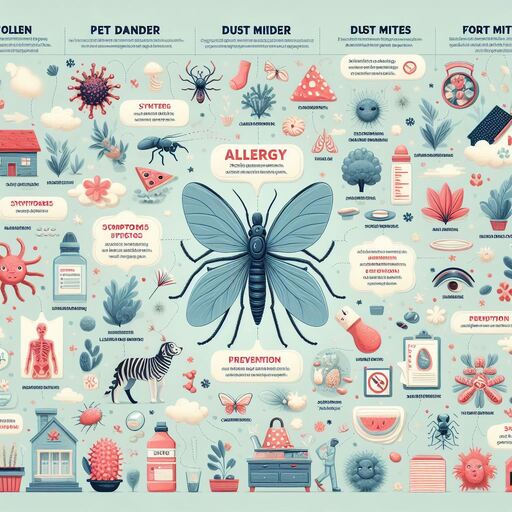Allergies are abnormal reactions to substances that are usually harmless, such as food, pollen, dust mites, or medications. These reactions can range from mild to severe and can cause a wide range of symptoms, including sneezing, runny nose, itching, hives, swelling, and difficulty breathing.
Allergies are caused by an immune system response that is overly sensitive to certain substances, known as allergens. When exposed to an allergen, the body produces antibodies called immunoglobulin E (IgE) that bind to specific cells in the nose and lungs, triggering a release of histamine and other chemicals that cause the symptoms associated with an allergic reaction.
Allergies can be prevented or managed through a variety of measures, including avoiding exposure to allergens when possible, taking medications to reduce the severity of symptoms, and using allergy-proofing techniques to limit exposure in the home or workplace. Some common allergy treatments include antihistamines, corticosteroids, decongestants, and nasal sprays.
It’s important to note that allergies can range in severity from mild to life-threatening, and it’s important for individuals with allergies to take appropriate precautions to manage their symptoms and avoid potentially dangerous reactions. If you or someone you know has an allergy, it’s important to seek medical attention and develop a personalized treatment plan that takes into account the individual’s specific needs and circumstances.

